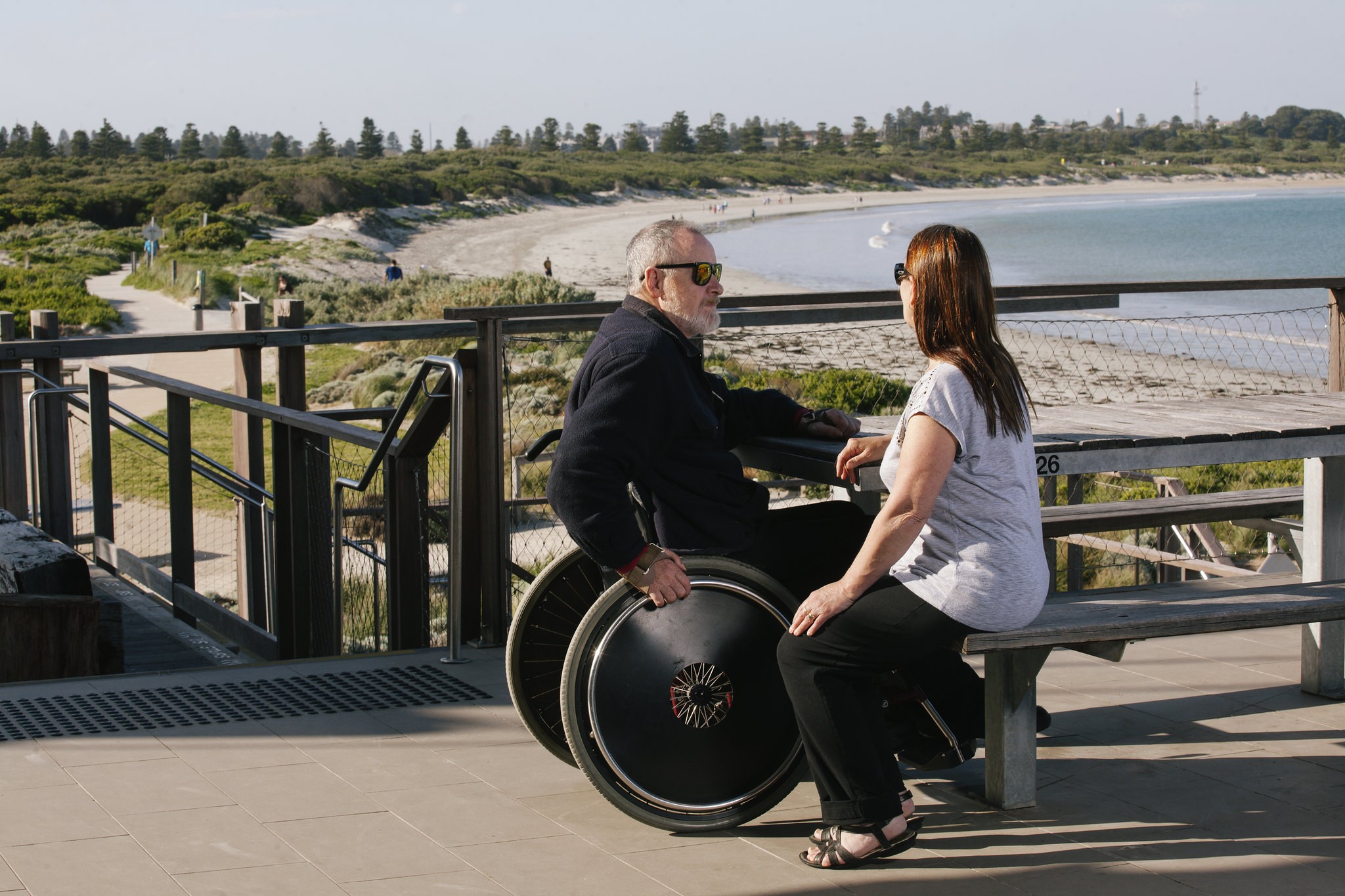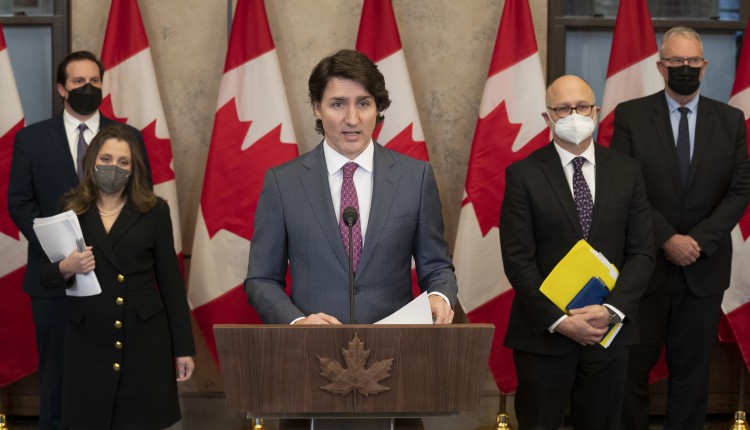

‘Video Statement’ by Sophia
- Title ‘Video Statement’ by Sophia
- Author Sophia (pseudonym)
- Year 2022
- Language English
- Tags Beyond the Grave Disability Critiques New Media Short Video Statement
- Legislative context Bill C-7: An Act to amend the Criminal Code (medical assistance in dying), 2021 (Canada)
- Author of entry Robyn Otto
First published August 2024, amended September 2025
Sophia recorded this video statement eight days before her medically assisted death on February 22, 2022. At Sophia’s request, a friend released the video and Sophia’s correspondence using a pseudonym after her death. The correspondence documents Sophia’s two-year search for suitable housing. While the video and correspondence have been covered extensively in the media, they are not available to the public in full. Because of this, Sophia’s intentions for seeking MAID and for releasing her video and correspondence are unclear. According to media accounts, when Sophia was unable to find a suitable apartment, she chose a medically assisted death. Sophia experienced multiple chemical sensitivities (MCS), which her physicians indicated required a cleaner air environment than her apartment could provide. In her video, as reported by CTV News, Sophia laid responsibility for her death at the feet of the government, saying, ‘The government sees me as expendable trash, a complainer, useless and a pain in the ass.’ Sophia’s story appeared alongside that of Denise, another woman with MCS who appeared in the media pseudonymously. Like Sophia, Denise applied for medical assistance in dying (MAID) after being unable to find housing that was suitable for MCS and that was wheelchair accessible, which she required because of a spinal cord injury. Both women relied on social assistance, which did not provide enough funding for them to move to apartments with air quality that would not trigger MCS symptoms. Denise stated explicitly that she had applied for MAID because of abject poverty. Through media coverage of her story, Denise was able to secure suitable funding. She subsequently withdrew her request for MAID.
MCS is a controversial medical diagnosis, recognized by the Ontario and Canadian Human Rights Commission as a disability, but not by the World Health Organization. There are clinics in Canada that specialise in environmentally-linked conditions like MSC, such as the Environmental Health Clinic at the Women’s College Clinic in Toronto. At the same time, many medical providers believe that the symptoms of MCS are physical manifestations of psychiatric illnesses or conditions like anxiety or depression, rather than a primary medical illness.
For commentators opposed to MAID or its extension, Sophia and Denise’s stories are evidence that Canada’s safeguards have failed people with disabilities. They point to the need to provide material support to people with disabilities so that MAID does not become a solution to a lack of funding. At the extreme, some commentators have used Sophia and Denise’s stories to argue that Canada’s MAID legislation is resulting in euthanasia of the poor in Canada. As in many accounts of MAID, there is significant information asymmetry in these cases. While the media had access to Sophia’s video statement and correspondence, they did not have access to her medical records, which were used by assessors to determine her eligibility for MAID. Four physicians who treated Sophia wrote letters to government officials on her behalf advocating for better housing, but they all declined to comment for the CTV News article that broke Sophia’s story. One of those physicians, Dr. Chantal Perrot, wrote in a parliamentary brief to the Special Joint Committee on Medical Assistance in Dying that she believed her patient would be appalled at how she was being portrayed in the media. While Dr. Perrot did not name Sophia, she stated that her patient chose MAID because she was aware that there was no cure for MCS and that even if she secured better housing, she would remain isolated because of MCS triggers outside the home. Dr. Perrot wrote that, ‘Unfortunately, those opposed to MAiD and special interest groups wanting to misuse her life and history have created a false impression of who she was and how she chose to live and die.’ Dr. Perrot is a member of the Clinicians Advisory Council for Dying with Dignity Canada. Sophia’s video statement leaves us with more questions than answers about eligibility for MAID in Canada, about the treatment and support offered to people with disabilities, and about media coverage of MAID.
***
Assisted Lab has compiled this entry based on information which appears to be no longer publicly available online. Nevertheless, because of its cultural and legal resonance, we have chosen to keep it here. For further discussion of how we choose the content of our archive, and our stance on activism and research, please see our ‘About’ section. We welcome feedback and suggestions via our Participate button.
Suggested citation
-
Sophia’s Video Statement, Assisted Lab: A Living Archive of Assisted Dying, August 2024, amended September 2025 <link>
Media citations
- Leyland Cecco, Are Canadians being driven to assisted suicide by poverty or healthcare crisis? The Guardian, 2022 → theguardian.com
- Avis Favaro, Woman with chemical sensitivities chose medically-assisted death after failed bid to get better housing, CTV News, 2022 → ctvnews.ca
- Avis Favaro, Woman with disabilities nears medically assisted death after futile bid for affordable housing, CTV News, 2022 → ctvnews.ca
- André Picard, We must make it easier to both live and die with dignity, but denying MAiD to those living in poverty is not the answer, The Globe and Mail, 2022 → theglobeandmail.com
- Yuan Yi Zhu, Why is Canada euthanizing the poor, The Spectator, 2022 → spectator.co.uk
- The truly awful cost of Canada’s permissive doctor-assisted death program, National Post, 2022 → nationalpost.com
Interest Group citations
- Remembering Sophia, Inclusion Canada, retrieved January 11, 2023 → inclusioncanada.ca
- Choice? MAiD euthanasia for chemical sensitivities and lack of housing, National Right to Life News Today, 2022 → nationalrighttolifenews.org
- Disabled Ontario woman pursues medically assisted death after being denied access to suitable housing, World Socialist Web Site, 2022 → wsws.org
Legal and Paralegal citations
- Special Joint Committee on Medical Assistance in Dying, Evidence, 44-1, no 7, 16 May 2022 (Sarah Jama, Disability Justice Network of Ontario) → parl.ca
- Brief to the Special Joint Committee on Medical Assistance in Dying, 9 June 2022 (Dr. Chantal Perrot) → ourcommons.ca
- Report of the Special Joint Committee on Medical Assistance in Dying, Medical Assistance in Dying in Canada: Choices for Canadians, 44-1, February 2023 (Dissenting Opinion of the Conservative Party of Canada) → parl.ca
Related Archival Entries
'Is it too easy to die in Canada?' by The Fifth Estate

The Fifth Estate (CBC News), Gillian Findlay
This documentary explores medical assistance in dying (MAID) in Canada as Parliament prepares to remove the exclusion in the law that does not allow people to access MAID if their sole criteria for access is a mental illness. The documentary takes a critical stance, introducing viewers to instances where MAID was seemingly approved for non-medical reasons or in reaction to mental health crises.